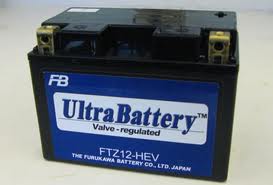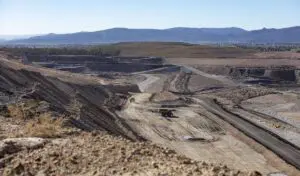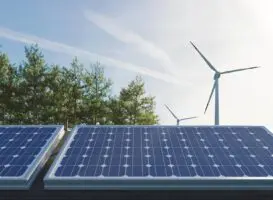CSIRO-developed battery technology geared at maximising electricity generation from residential and commercial renewable energy systems has become the latest recipient of federal government cleantech funding, with $480,000 to go towards testing the world-leading energy storage technology.
The funding for CSIRO spin-off company Ecoult, which comes via the Australian Renewable Energy Agency’s (ARENA) Emerging Renewables Program, was announced by the Minister for Resources and Energy Martin Ferguson on Tuesday, and will go towards testing and optimising the CSIRO-developed Deka UltraBattery.
The 30 month, $1.16 million pilot project aims to determine whether Deka UltraBattery technology can lower renewable energy operating and storage costs, through tests on a storage pilot at CSIRO’s Newcastle facilities.
The mid-sized pilot project will develop battery storage system prototypes for three different applications: remote, off-grid renewable energy supply; distributed grid connected storage to support residential areas with a high concentration of small roof-top solar installations; and hybrid generation, like diesel plus renewables, to improve fuel efficiencies.
“Testing the UltraBattery technology for both off-grid and distributed technology environments will allow us to learn how we can reduce power fluctuations, which can otherwise act as a barrier to connecting additional solar installations to the electricity grid,” Ferguson said.
“In residential areas with a large volume of rooftop solar photovoltaics, or in off grid and remote communities that are trying to displace diesel through renewables, battery technology will be crucial to maximising electricity from renewable energy resources.”
Ecoult says it has already successfully implemented the Deka Ultrabattery technology in MW-scale, grid-tied solutions around the world, successfully demonstrating its use in solar and wind energy smoothing and shifting.
“Our objective is to reduce the cost of energy storage and boost the competitiveness of small-scale renewable energy sources such as roof-top solar panels,” says Ecoult CEO John Wood.
“This backing from the Australian government will help us continue our work in enabling affordable and effective integration of renewable energy into the Australian grid as well as in remote, off-grid applications.”
The Sydney-based company is also currently implementing Deka Ultrabattery as part of a full stand-alone Power System for the King Island Renewable Energy Integration Project, being developed by Hydro Tasmania to reduce King Island’s reliance on diesel.
Meanwhile, Australian online energy retailer Click Energy has formed a partnership with US company Stem Energy to distribute the latter’s energy management and storage system to customers in the Australian market to help reduce their electricity bills.
The deal marks the first international sale and partnership for the California-based Stem, who this month sold out their first batch of Stem Energy Systems in the US, which the company says combines advanced battery storage technology with cloud-based data analytics to reduce electricity bills for businesses by up to 20 per cent.
“We are excited to be partnering with Click, an innovative energy company, to expand our reach into the Australian market,“ said Stem CEO Salim Khan. “Stem’s approach to optimising energy provides the same benefits in other markets as it does here in the US, and we are excited to provide an option to Australian electricity consumers.”
Stem says its PowerMonitors will give Click customers the opportunity to model upcoming pricing structures to see how advanced energy storage can affect their bills.
“The need for energy storage is expected to grow rapidly in coming years,” Janice Lin, executive director of the California Energy Storage Alliance, said last week. “It’s great to see storage companies like Stem generating momentum in the industry.”








